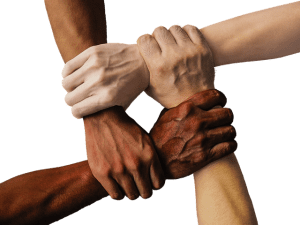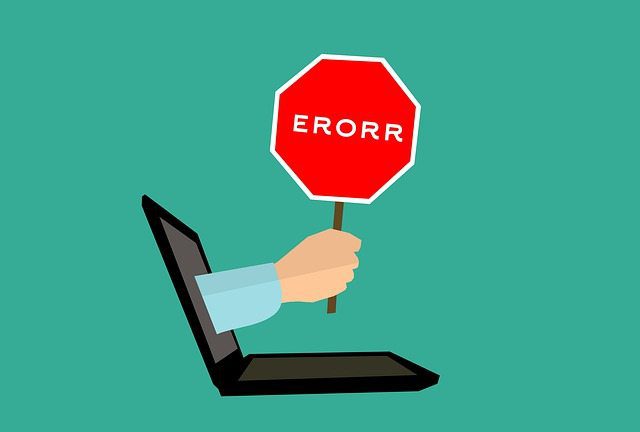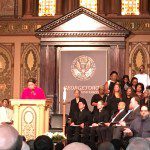Last month, I had the occasion to hear Lisa Sharon Harper, Chief Church Engagement Officer at Sojourners, speak to a group of graduate students about whiteness, race, and politics.
Lisa’s latest book, The Very Good Gospel: How Everything Wrong Can Be Made Right, is a work for our time. It is at once theological and activist, and leaves me with the impression that there is less difference between the two than I supposed. In a chapter on race, Lisa asks, “What does it look like to be washed clean of twenty-first century implicit racial bias?”
She offers some suggestions:
- Become aware (take this test)
- Grow your empathy
- Immerse yourself (the only way worldviews change is when individuals are immersed in communities populated by people the individual had been biased against)
- Take every thought captive (2 Corinthians 10:5)
- Forsake race
Forsake race? Is that even possible? I found the whole idea stunning. It really got me thinking. Here’s a brief excerpt:
It is impossible to live justly within a manufactured system that was built with the purpose of defining who has power and who doesn’t. That system runs counter to the ways of God. What would it look like for white Jesus followers to renounce their racial affiliation, to no longer accept the power and privilege allotted through the current system?
When Lisa presented this idea to the students, it sat uncomfortably with many of them. Two African-American women retorted that they had been raised to be proud of their blackness. They didn’t want to forsake it. But Lisa, speaking from a theological point of view, challenged the students to admit that race is a social construct, separate from ethnic heritage.
She talked about the history of whiteness in America. Before there were “white people,” there were Germans and English and Dutch and so on. But eventually, the culture and the government settled on a category called “white” and debated how long various immigrants — Irish, Jews, Italians, and others — had to wait to be included in it.
I have never doubted that white privilege exists, but I have never thought much about my identity as a white person. Amateur genealogists in the family have traced our particular ethnic heritages to various parts of Europe. But I have always thought of myself as “just an American.” I am quick and happy to acknowledge my Patriot ancestors. But “whiteness” was always something I took as a given but never felt especially proud to identify with.
In more recent times, I find whiteness to be something I expressly do not want to identify with. I see whiteness associated with not only insufficient wokeness and unacknowledged privilege, but also with active, nasty social and political impulses.
In my work as a writer, I have specifically pushed white evangelicals to do more (not just say more) about systemic racism. But privilege accrues to “white people” across the religious spectrum. What would I say to others who believe and vote more in accordance with my preferences but nevertheless do little to, as Lisa Sharon Harper says, “no longer accept the power and privilege allotted through the current system?” What am I myself willing to give up?
This is a vital, provocative question. I would be so curious to hear from others. Should we forsake race? What would that look like? Would it help?

















